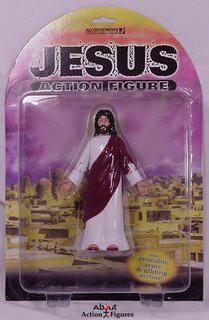What Does it Mean to be Reformed?
 Last week I posted 20 Statements that if true in your life, you know you may not be Reformed. But some may ask, "What does it mean to be 'Reformed?'"
Last week I posted 20 Statements that if true in your life, you know you may not be Reformed. But some may ask, "What does it mean to be 'Reformed?'"A month or so ago, Tim Challies put together a rather good posting in which he explained what (in his opinion) it means to be Reformed. I bring it to you in hopes that you might find it helpful and informative.
"Every year or so I find myself crawling back to a definition of the word Reformed that I first wrote up a couple of years ago. I find it worthwhile to revisit this every twelve months or so. With the amount of reading and studying I do in a year, I feel it is interesting to turn to this definition to see what I would change and what I would refine. I also find it humbling to see which parts of the definition I may have emphasized at the expense of others. And so today I thought I would define the word Reformed, trusting that the readers of this site will find it helpful. While Calvinism and Reformed are not fully synonymous, most people understand them to be so. Because the differences between them are subtle, I will use them synonymously.
It is important to understand that because the Reformed tradition arose from the Protestant Reformation, the term Reformed was not defined from within a void. Rather, it was defined as a biblical response to the excesses and perversions of the Roman Catholic Church. The Reformers, having returned to Scripture, attempted to carefully and faithfully rebuild the church upon the teachings of the New Testament. Thus by affirming Reformed theology, a person is implicitly denying certain other theologies, such as Catholic theology (which Reformed theology rose in opposition to) and Arminian theology (which later rose in opposition to Reformed theology). While Calvinism predates Arminianism, it was only codified in the five points after the rise of Arminianism. There is a sense in which Calvinism is both a cause of and the reaction to Arminianism. Or perhaps we could say that Arminianism is a response to Reformed theology, and the codification of Calvinism is a response to Arminianism.
There are many expressions of the Christian faith that are based at least partially on the teachings of Jesus Christ and the Bible. These are separated into four main divisions: Eastern Orthodox, Roman Catholic, Protestant and Cults. Protestantism can be fairly readily divided into two camps: Arminian and Reformed. The vast majority of Protestants hold to Arminian doctrine. We will concern ourselves today with the minority who consider themselves Reformed. These tend to be people who attend Presbyterian or Reformed Baptist Churches, though they may be found in other churches as well. Sadly, there are many churches that were once Reformed and may still use the title, even if they have long since abandoned the theology.
It is surprisingly difficult to find a worthwhile definition of Reformed. While many people claim to understand the Reformed faith and are eager to provide a definition, few seem to be both fair and adequate. Here are a couple of examples culled from a Google search:
1. A term used to refer to a tradition of theology which draws inspiration from the writings of John Calvin (1510-64) and his successors. The term is generally used in preference to "Calvinist."
2. Referring to the Reformation, its theology, and/or those subscribing to it. Also used to differentiate a) Calvinism from Lutheranism, or b) Continental European Calvinism from Scottish Calvinism, a.k.a. Presbyterianism.
Those are both concise definitions but ones that do not capture the full sense of the word. A far better and more complete definition is found at Five Solas. There Professor Byron Curtis, a professor at Geneva College breaks the definition into four parts which I will expound in some detail. The first two parts define foundational Protestant beliefs and the second two are exclusively Reformed. According to Curtis, to be Reformed is:
1. To confess the consensus of the five first centuries of the church:
- Classic theism: One omnipotent, benevolent God, distinct from creation.
- Nicene and Chalcedonian Trinitarianism: one God in three eternally existent persons, equal in power and glory.
- Christ, the God-Man, the one mediator between God & the human race, incarnate, crucified, resurrected, ascended, & coming again.
- Humanity created in the image of God, yet tragically fallen & profoundly in need of restoration to God through Christ.
- The Visible Church: the community of the redeemed, indwelt by the Holy Spirit; the mystical body of Christ on earth.
- The one, holy, catholic, and apostolic church.
- The Sacraments: visible signs and seals of the grace of God, ministering Christ's love to us in our deep need.
- The Christian life: characterized by the prime theological virtues of faith, hope, and love.
It would be correct to say that, to this point, we are dealing with a statement of the Protestant faith more than a statement of the Reformed faith. From this list we see that Reformed Christians adhere to all the foundational beliefs taught in the Bible. These beliefs were the foundation of the early church and are based on the teachings of the Bible as interpreted by the apostles and early church fathers. Many of these beliefs were changed or lost as the Catholic Church grew in power and authority from the fifth century onwards. Throughout history there were isolated and often-persecuted pockets of non-Catholic believers who held to many or all of these points of doctrine, but they were largely lost until their rediscovery at the time of the Reformation.
We will find that Professor Curtis' definition is based largely upon a Presbyterian understanding of several doctrines. Reformed Baptists may take issue with the sacraments being signs and seals. I would suggest that Reformed believers will have a high view of two sacraments, though they may differ somewhat on just how they are to understood and how they are to be administered.
2. To confess the four solas:
- The authority of Scripture: sola scriptura (Scripture alone)
- The basis of salvation: Sola Gratia (Grace alone)
- The means of salvation: Sola Fide (Faith alone)
- The merit of salvation: Solus Christus (Christ alone)
Again, these form the basis for Protestantism as much as they do for the Reformed tradition, though sadly the majority of Protestants will never encounter the terms. These are the principles that drove the Protestant Reformation of the 16th century and separated it from the Roman Catholic Church. These four points of doctrine are based entirely on the Bible and were the theological driving force behind the newly formed Protestant movement.
3. To confess the distinctives of the Reformed faith:
In salvation: monergism not synergism. God alone saves. Such monergism implies T.U.L.I.P., the Five Points of Calvinism from the Synod of Dordt:
T = Total Depravity
U = Unconditional Election
L = Limited Atonement, or, better, Particular Redemption
I = Irresistible Grace
P = Perseverance and Preservation of the Saints
These five distinct points of doctrine are also known as the five points of Calvinism as they were first articulated by John Calvin after the Reformation was in full-swing. They are based entirely on the Bible. When people speak of being Reformed these five points of doctrine are most often what they are referring to. Most evangelical (non-Reformed) churches do not hold to all of these points. Some hold to two or three (and occasionally even four), but most reject them in favor of Arminian theology which is, at heart, synergistic, relying on a cooperative effort between man and God.
4. Other Reformed Distinctives:
Professor Curtis goes on to list other points of doctrine he believes are Reformed distinctives. They include: The Regulative Principle of Worship, Covenant theology (The Church is the New Israel - we most often see an expression of this theology in infant baptism, but it also impacts eschatology and many other doctrines) and Life is religion (Christians have neither jobs nor careers; they have vocations [callings]). I would not consider adherence to these principles necessary to consider oneself Reformed and I suspect the majority of Reformed Christians would agree with me. It is these distinctions that provide some of the differences between Calvinist and Reformed.
5. Finally: in everything, Soli Deo Gloria - to God alone be the glory in all things.
This is, once more, something all Christians would claim, either explicitly or implicitly. In all areas of life we are to give glory to God alone.
So what does this all mean? To be Reformed is to adhere to the purist teachings of the Bible - to affirm the doctrine taught by Jesus, Paul and the apostles. Scripture is considered the ultimate authority in matters of life and faith and all Reformed doctrine is founded on the Bible. I am convinced that Reformed doctrine is nothing more than the teachings of Jesus, the Apostles and the totality of the Scriptures. Were it not for human sin we would have to make no distinction between biblical Christianity and the Reformed faith."
Kuddos again to Tim for this!
If you are interested in learning more about the Reformed tradition, here are a few resources:
- Desiring God, by John Piper
- What Is Reformed Theology?, by R. C. Sproul
- The Doctrines of Grace, by James Boice
- And for those interested in knowing of today's contemporary Reformers, Monergism.org












